

Tomorrow’s workforce will come from the cloud, study predicts. There are more outsiders and fewer insiders doing the jobs of today's organizations.
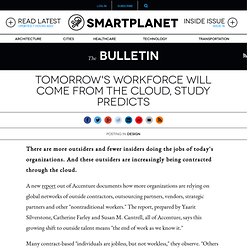
And these outsiders are increasingly being contracted through the cloud. Farrah Bostic, founder of The Difference Engine. Farrah Bostic starts to speak, then catches herself.
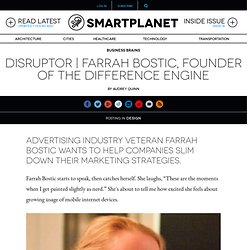
She laughs, “These are the moments when I get painted slightly as nerd.” She's about to tell me how excited she feels about growing usage of mobile internet devices. We're seated in the lobby of Manhattan's shamelessly hip Ace Hotel, sipping artisanal coffee as tech entrepreneurs work from laptops around us. Nerd proclivities aside, Bostic's clearly at home here, in slim red jeans and a sleek blond ponytail.
She meets clients here regularly, and when a leather jacket wearing thirty-something walks by she reaches out her hand to high-five him. Bostic founded the marketing and innovation strategy company The Difference Engine in 2011. Making business Lean. Peter Loeb, Lionrock Recovery. Online healthcare entrepreneur Peter Loeb's backstory reads like the script for a made-for-TV serial drama, although it's one working toward a happy ending.
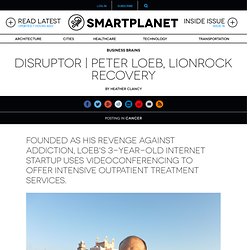
The opening scene is set in 2004, the dismal day the successful Internet executive discovered his 17-year-old daughter, Ashley, in her bedroom barely breathing after a heroin overdose. It was just the latest episode in a young life already haunted by alcoholism for almost five years. But despite the near-death experience and repeated family interventions, it would take her two more years to get sober. "I'm not sure that I can express to you at this moment the level of turning inside out that a parent does with a child whose life is threatened with this kind of stuff," says Loeb, speaking via videoconference from his home in Northern California, pausing as he turns back the clock.
"And how hard it is. Flash forward to early 2013. The full regime suggests 36 hours per month, including individual and group sessions. Hilary Mason, chief scientist, Bitly. "We always joke that the Internet is full of cats,” Bitly's chief scientist Hilary Mason tells me as she leans into her office's conference table.
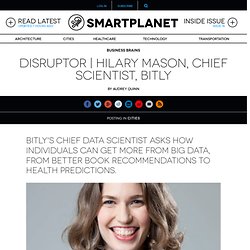
“And, here it is. It is full of cats, and that's OK. They're adorable. " Mason's spent three years sorting through the Internet habits of the URL tracking service's millions of users. Q&A: Andreas Raptopoulos, co-founder and CEO, Matternet. Andreas Raptopoulos has a deep, warm voice and kind eyes that crinkle at the corners when he smiles.
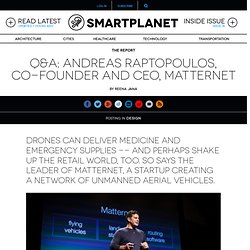
The co-founder and Chief Executive Officer of Matternet, a Palo Alto, CA-based startup that's working on "creating the next paradigm for transportation using a network of unmanned aerial vehicles," Raptopoulos believes that in our era of software innovation, businesspeople and humanitarian organizations should not lose sight of the importance of delivering physical goods and services, too. The concept behind Matternet is to create a physical network of small flying drones that could transport packages, relay-race style, between ground stations.
The idea is to form a system in which various goods, such as medicine or emergency supplies, can be brought to places without immediate access to these needs -- say, because of a lack of roads or other infrastructure. At the ground stations, the drones' batteries could be replenished. Melissa Thompson, CEO, TalkSession.
“When I was first thinking about this,” TalkSession CEO Melissa Thompson said of her mental health startup, “I thought of how, when I saw a therapist every week or every other week, it was always 9 a.m. on a Monday.
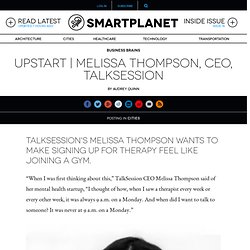
And when did I want to talk to someone? It was never at 9 a.m. on a Monday.” This frankness about mental health services, along with a desire for more convenient therapy, are the hallmarks of Thompson's new business. TalkSession will operate as an online platform that pairs therapists with patients through matching algorithms, online scheduling and a teletherapy platform. So far she has partnered with 50 New York City therapists with a range of specialties, and she will bring that number to 100 after completing a survey to anticipate user preferences. Thompson met me in a lower Manhattan bakery a few blocks away from TalkSession's office. Thompson first conceived of the idea for TalkSession in 2011 while finishing business school. "I just," she paused and looked at me, "left. 6 startup trends in 2013: bootstrapping, marketing, B2B.
Russ Hawkins, Agilence. One big mistake many startups make is spreading themselves too thin for the sake of early revenue.
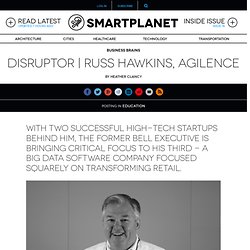
Russ Hawkins, 57, learned that lesson first-hand at a mammoth company - as a bag-carrying salesman and branch manager for the pre-breakup Ma Bell organization. Since then, finding focus has been foremost in his decisions as CEO of two successful technology startups. And it is something he embraces closely at his third and most recent venture, a "big data" software developer called Agilence Inc.
Africa has more mobile phone users than the U.S. or E.U. Africa now has more than 650 million mobile phone subscribers.
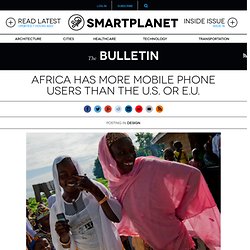
That's more than either the United States or the European Union. And it's a market that has seen explosive growth. Since 2000, the mobile phone market has grown 40-fold, from 16.5 million, according to the World Bank. And Africa trailed only South Asia as the region with the largest average mobile growth rate from 2000-2011. The Future of Work Is Services: So Where Is the Future of Services? - Derek Thompson. The White House likes to talk about manufacturing, and it's easy to fetishize the honor in "making things," but when you get right down to it, it's a services world, and we're all just living in it.
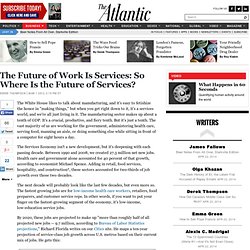
The manufacturing sector makes up about a tenth of GDP.